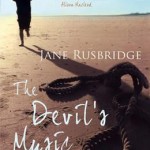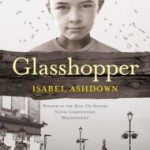Thursday 5th May 2011 I had the pleasure of attending a fundraiser for StonePillow , a local charity working with homeless people. I went to hear readings from three very local writers: Isabel Ashdown, Jane Rusbridge and Gabrielle Kimm. The quality of the extracts was excellent – and it gave me to thinking why.
The three main works were quite distinct – though all had an historical element. Both ‘Glasshopper’ by Isabel Ashdown and ‘The Devil’s Music’ by Jane Rusbridge take place in England in the recent past, whereas Gabrielle Kimm set ‘His Last Duchess’ in 16th century Italy. But it wasn’t the vivid recreation of a previous era that captvated: it was the emotion.
All three authors read with a clear sense of the emotion in their work. Speaking to them afterwards, it became clear that despite the distance between the reading and the publication, the feelings of their primary characters still animated the writers. And this in turn engaged their listeners.
This is critical to me as both reader and writer. I may have no idea how banquets were conducted at the Court of Alfonso d’Este – but I can connect with the tentative feelings of a young bride. Similarly, I can identify with the experience of a frightened boy or an embarrassed teenage girl in any time, location or culture because of their emotions. Emotions link us to all humans: and the single emotional thread was the first key concept Greg Mosse taught us on the Creative Writing MA.
These writers, and many more who engage with their readers, portray emotion with clarity and honesty. They use dialogue and action to reveal their characters’ emotional lives. Everyone experiences anger, love and loss – and writers show these because they are inherent to the human experience. They don’t use emotions to draw the reader in – they experience the emotions of their characters and record them.
Therefore a creative writer shows anger, love and loss through distinct voices. At this reading, I had the direct experience of hearing those voices and the physical emotion in them. As a reader, you ‘hear’ the voice of the characters in your head – and you also have a sense of the author’s voice. It is the intensity of feeling in the writer’s voice that draws us into their fictional world.


Lovely post – I’m so glad you enjoyed the evening last night, and brought something away from the readings. It’s one of the things I love about writing historical fiction, the fact that those fundamental emotions and feelings don’t change, and that the jealousies and joys, fears and ambitions of people five hundred years ago are pretty much how they are for us today.
There has been much discussion amongst us on Twitter recently, about the intermittent (and sometimes deeply frustrating!) non-cooperation of one’s characters, and how we as writers are perhaps more like ‘scribes’ than ‘inventors’, just recording the narrative that exists somehow independently from the writer.
I’m looking forward to reading some of your writing!
My dear Gabrielle – what a long and worthwhile comment!
I am beginning to understand what you mean about the independent life ( aka sheer bloodymindedness) of one’s characters. In my case, Mattie has an extraordinary ability which just won’t go away. It’s just as well I am comfortable, or rather at home, in my fantasy world.
Thank you for your interest in my writing – you may live to regret it.